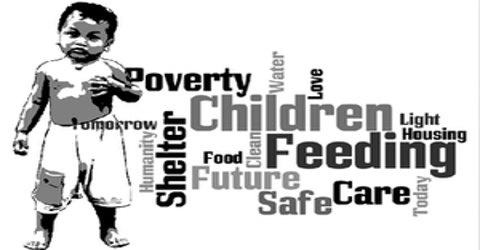

Poverty is the greatest challenge facing the world today, especially developing countries.
It is a complex multi-dimensional problem characterized by lack of purchasing power which could lead to malnutrition, high mortality rate, low life expectancy, insufficient access to social and economic services which exist in both the national and international domains.
Statistics show that there is an increase in the number of people living in abject poverty, particularly in developing countries.
The enormity and complexity of the poverty issue could undermine economic development and threaten political stability of many countries if not adequately addressed.
Though, Nigeria is blessed with vast mineral resources and crude oil, it is still classified among the poorest nations of the world as almost one hundred million live on less than a dollar per day.
National Bureau of Statistics estimates, show that over sixty percent of Nigerians are living in poverty.
The effects of poverty are enormous, for instance children who grow up in poverty suffer more persistent, frequent, and severe health problems than children who grow up under better financial circumstances.
In view of the negative impact of poverty on the people, various poverty alleviation programmes were established by successive governments, some of which include the establishment of the defunct People’s Bank of Nigeria, PBN, to provide credit facilities to the less-privileged, National Poverty Eradication Programme, NAPEP, Youth Empowerment Programme, Subsidy Reinvestment Programme, SURE-P, to mention but a few.
Some of these programmes did not succeed due to poor implementation mechanism, unstable government policies as well as lack of political will.
Given the country’s high unemployment rate, entrepreneurship remains a crucial key to reducing poverty.
Obstacles to business creation such as corruption and high interest rate by commercial banks should be tackled headlong to change the country’s fortunes.
Also, integrating thousands of households into local markets and advanced agricultural techniques are essential to poverty reduction.
Massive government intervention such as investment in basic infrastructure in the areas of education, road rehabilitation and public transportation are needed to alleviate poverty at the grassroots.
Moreover, social protection systems and social security services must be put in place to support those who cannot fend for themselves.
While, substantive steps should be adopted towards women empowerment which is key to any nation’s development.
Government should intensify efforts in providing stable electricity supply for companies that are ready to help in creating jobs for the youths.
Above all, to guarantee a better living for the masses and for business to thrive conveniently in the country, stakeholders from different sectors must collectively work together to ensure that the issue of insecurity is addressed.
Anthonia Akanji